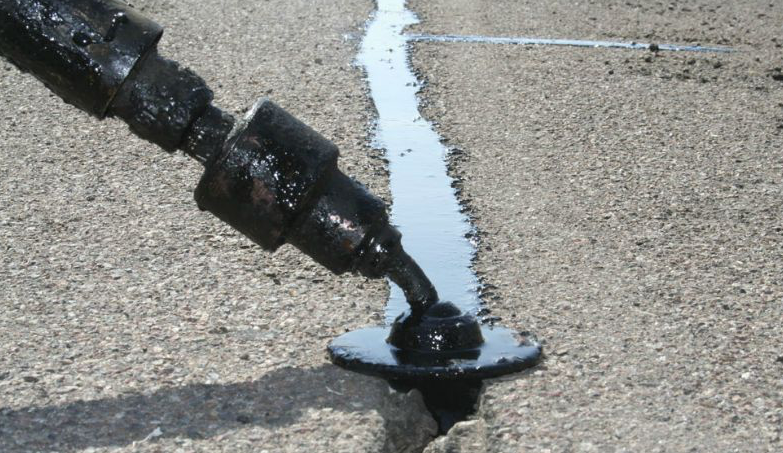Reliable Asphalt Repair: Cold Mix Sealing Techniques Introduced
Reliable Asphalt Repair: Cold Mix Sealing Techniques Introduced
Blog Article
Cold Mix Asphalt Vs. Hot Mix Asphalt: Which Is Right for You?

Composition Distinctions
Cold mix and hot mix asphalts differ substantially in their structure, with unique qualities that affect their efficiency and applications. Cold mix asphalt is produced by emulsifying the asphalt binder with water and an emulsifying representative prior to blending it with accumulation. This method enables for the asphalt to be workable at lower temperatures, making it perfect for temporary repairs and for usage in cooler weather. Warm mix asphalt, on the other hand, is made at heats, commonly between 300-350 ° F, which assists to achieve much better compaction and a more sturdy end product. The hot mix asphalt production process includes heating the aggregate and asphalt binder independently prior to integrating them at the asphalt plant.
Additionally, cool mix asphalt tends to be less thick and much more flexible than hot mix asphalt. This versatility makes it better suited for areas with greater levels of motion, such as driveways or roads with rush hour. On the other hand, warm mix asphalt is recognized for its high toughness and resistance to rutting and breaking, making it a favored option for highways and high-traffic roads where durability is vital.
Setup Process Differences
The procedure of installing cold mix and warm mix asphalt shows remarkable variances in their procedures and needs. In comparison, warm mix asphalt demands a more fancy setup process. Due to the home heating requirements, hot mix asphalt setups are normally carried out by specialists with customized devices, making certain a much more long-term and structurally sound outcome.
Toughness and Longevity Elements
When considering asphalt alternatives, longevity and long life are essential elements to assess for long lasting pavement performance. Warm mix asphalt (HMA) is understood for its extraordinary sturdiness and long life. The high temperatures during the laying and blending process permit far better compaction, causing a denser and stronger sidewalk structure. This brings about HMA being much more resistant to rush hour tons, harsh weather, and the results of maturing contrasted to cold mix asphalt (CMA)
In regards to durability, HMA generally outperforms CMA as a result of its premium strength and useful site resistance homes. HMA pavements have a longer life span, needing much less frequent repair work and maintenance, which can equate to set you back savings over time. Furthermore, HMA sidewalks are more conveniently customizable to fulfill details project demands, further boosting their resilience.
Cost Factors To Consider
Considering the economic implications is a critical aspect when examining the selection in between hot mix asphalt (HMA) and cold mix asphalt (CMA) for pavement projects. While the initial cost of warm mix asphalt is normally greater than that of cool mix asphalt, HMA frequently offers a more affordable remedy in the long run due to its premium longevity and durability.
Along with material prices, it's crucial to think about the expenditures related to installation and upkeep when contrasting HMA and CMA. HMA generally needs specialized tools and knowledgeable labor for appropriate installation, which can influence general project costs. On the other hand, CMA is easier to deal with and can typically be applied utilizing simpler techniques, possibly decreasing setup expenses. Eventually, the decision in between HMA and CMA ought to take into account not simply the first price however likewise the long-term financial implications to establish the most cost-efficient option for the particular pavement project.
Environmental Effect Comparison
Comparison of the environmental influences in between hot mix asphalt (HMA) and cold mix asphalt (CMA) discloses unique differences in sustainability methods. HMA manufacturing needs heats, leading to boosted energy consumption and greenhouse gas emissions. The process likewise launches volatile organic substances (VOCs) and harmful air pollutants (HAPs) right into the atmosphere. In comparison, CMA is generated and used at lower temperature levels, reducing energy usage and exhausts dramatically. The lower manufacturing temperature levels of CMA result in reduced fuel usage and reduced degrees of carbon dioxide emissions, making it a more eco-friendly option.
In addition, the usage of CMA usually includes reusing existing asphalt pavement, advertising source conservation and lowering the amount of waste sent out to landfills. By choosing for CMA over HMA, road construction projects can add positively to environmental conservation efforts.
Conclusion
Finally, the choice between chilly mix asphalt (CMA) and warm mix asphalt (HMA) depends upon find more information various elements such as structure, installation procedure, toughness, long life, price, and ecological influence. asphalt try here repair. While CMA offers a quick and cost-effective solution for minor repair work, HMA makes certain exceptional longevity and longevity for rush hour locations. Consider these elements thoroughly to establish which type of asphalt is the ideal choice for your paving requires

Considering the financial effects is an essential facet when reviewing the choice in between hot mix asphalt (HMA) and cold mix asphalt (CMA) for pavement tasks. While the preliminary price of warm mix asphalt is typically higher than that of chilly mix asphalt, HMA usually supplies a more economical option in the lengthy run due to its superior durability and durability. cold mix asphalt.Comparison of the ecological influences in between hot mix asphalt (HMA) and chilly mix asphalt (CMA) reveals distinct differences in sustainability practices.In conclusion, the option between chilly mix asphalt (CMA) and warm mix asphalt (HMA) depends on numerous variables such as structure, installment procedure, toughness, durability, expense, and ecological effect
Report this page